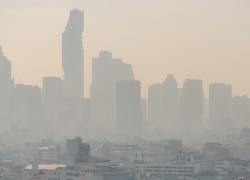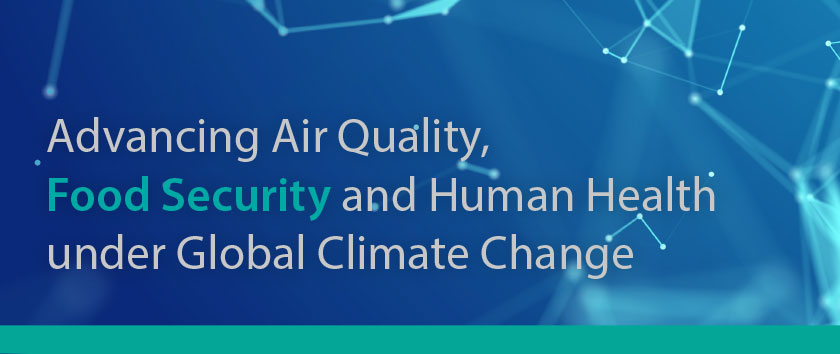

Advancing Air Quality, Food Security and
Human Health under Global Climate Change
Human Health under Global Climate Change
- Atmospheric Circulations Associated With Extreme Precipitation Over the Yangtze River Valley During the 2020 Meiyu Season
- How Intense Will Future Tropical Cyclone Impacts Become Due to Global Warming?
- Sustainable Farming Practices as a Means to Resolve the Worsening Food Crisis and Air Pollution Problem
- Harnessing Nature-based Solutions for Ameliorating the Impact of Global Environmental Change
- Transboundary Air Pollution and Health Impacts
- Adverse Effects of Environmental Contaminants on Human Health
|
Home / Project Highlights / Food Security / Sustainable Food Production and Consumption to Resolve the Worsening Food Crisis and Air Pollution Problems
|
|
Sustainable Food Production and Consumption to Resolve the Worsening Food Crisis and Air Pollution Problems
|
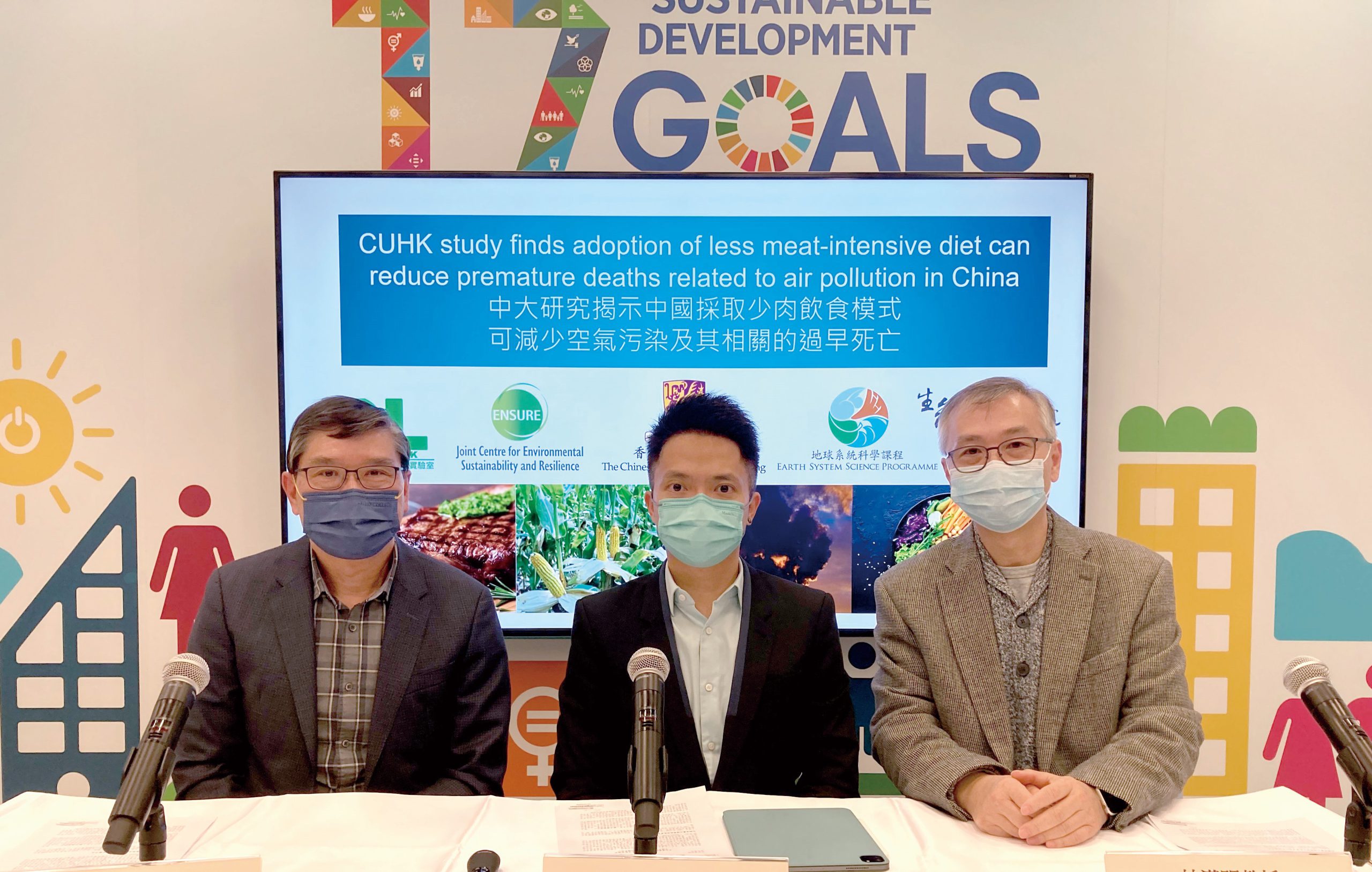
Professor Joe Shing-yip LEE (left), Professor Amos Pui-kuen TAI (center) and Professor Hon-ming LAM (right) in a press conference announcing research findings of this project.
| Professor Amos Pui-kuen TAI of the Earth System Science Programme teamed up with Professor Hon-ming LAM of the School of Life Sciences at CUHK to investigate the potential of improving food production methods and food consumption patterns to reap multiple benefits for food security, environmental protection, climate change mitigation, and human health. Using advanced computer models with integration of experimental and field observations, they explored the feasibility of a total replacement of the traditional farming practice of monoculture with intercropping, as well as a replacement of present-day meat-intensive diet with a healthier, plant-based diet. They found that intercropping enables higher productivity in crops with less synthetic fertilizers and hence reduces the air pollutants being volatilized from the cropland soil. They also found that a nationwide adoption of plant-based diet in China may help alleviate up to 20% of the air pollution in China. |
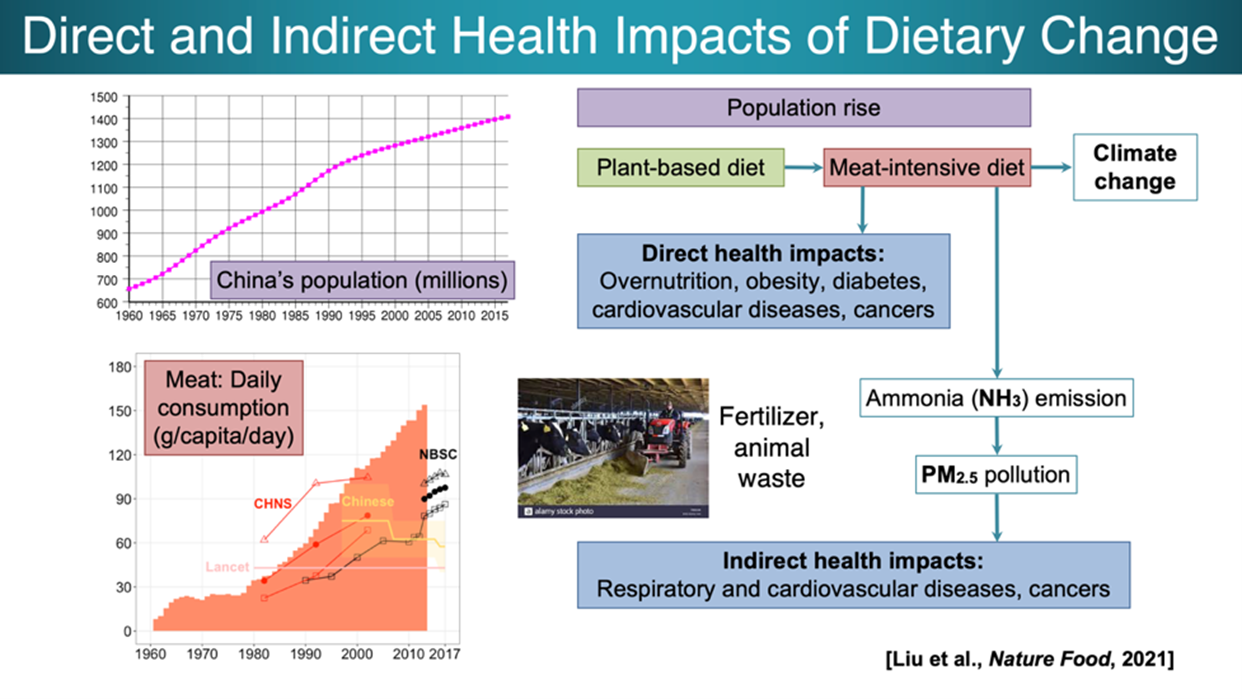
Dietary changes in the form of higher meat consumption can not only directly impact human health by increasing the risks of diet-related diseases and worsen climate change via greenhouse gas emissions, but also worsen air pollution, leading to unexpected health consequences and premature deaths.
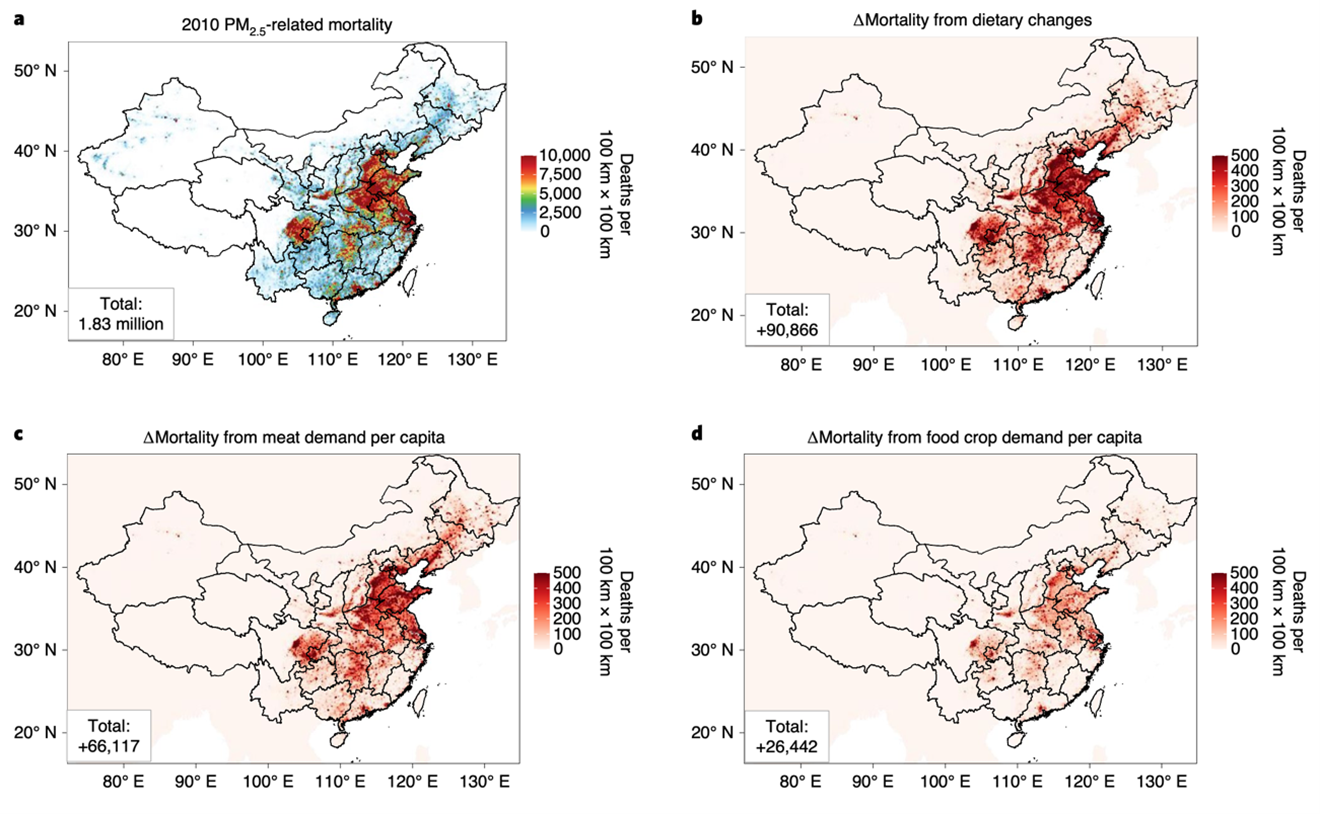
Indirect health cost of dietary changes related to particulate matter pollution under increasing demand for meat (including animal feed crops) and food crops for direct human consumption.

Potential environmental and indirect health benefits of moving from the current 2010s diet to the healthier, less meat-intensive diet recommended by the 2016 Chinese Dietary Guideline in terms of changes in annual mean particulate matter concentration and pollution-related premature mortality.
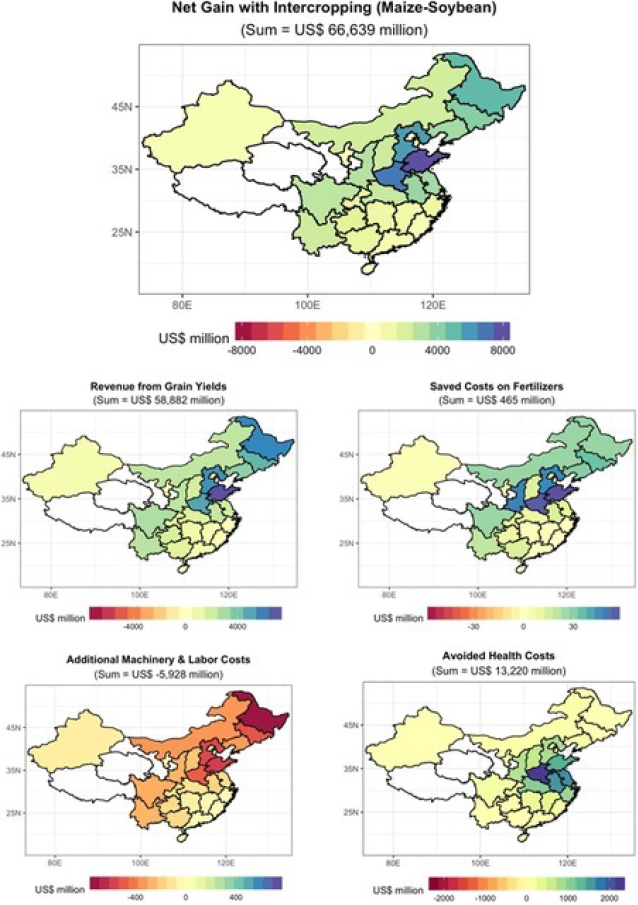
Cost-benefit analysis for the nationwide adoption of the maize-soybean intercropping system in China.
|
Reference:
|
|




